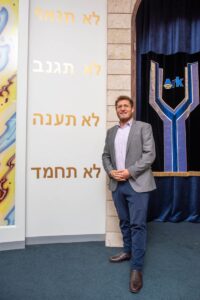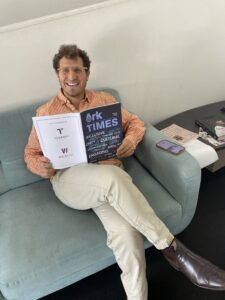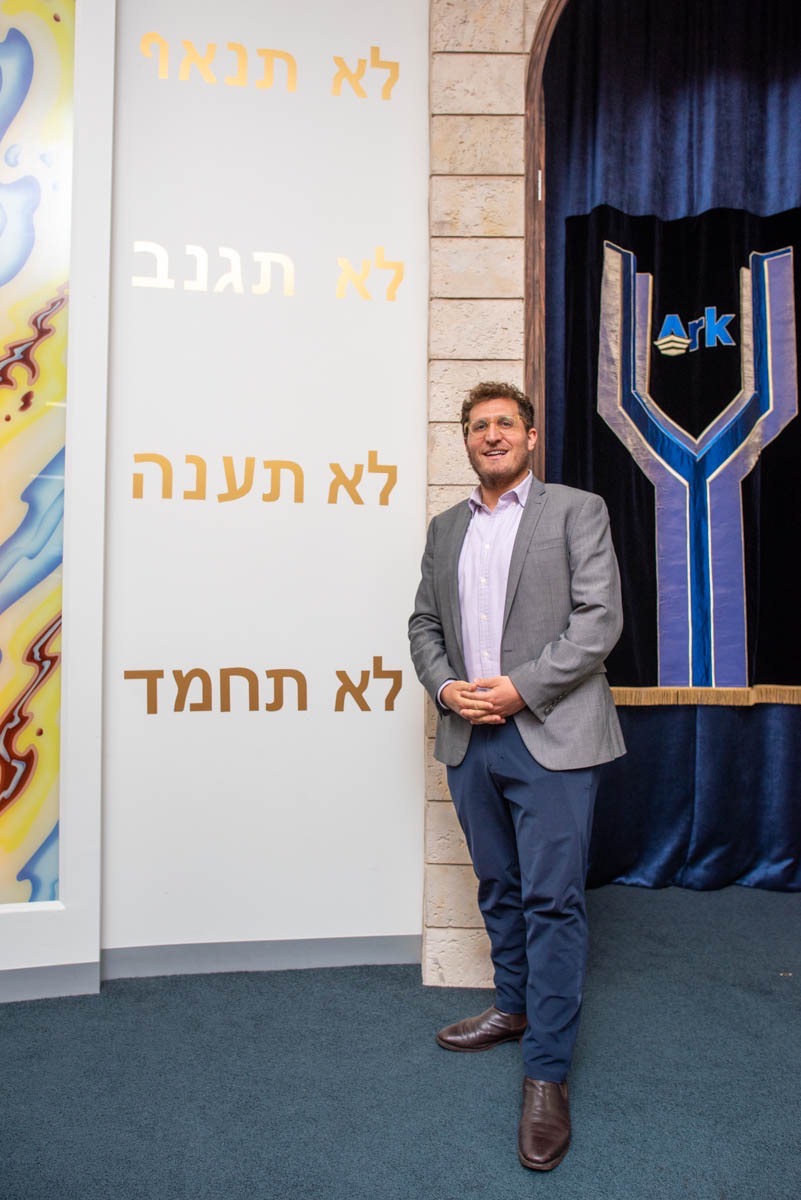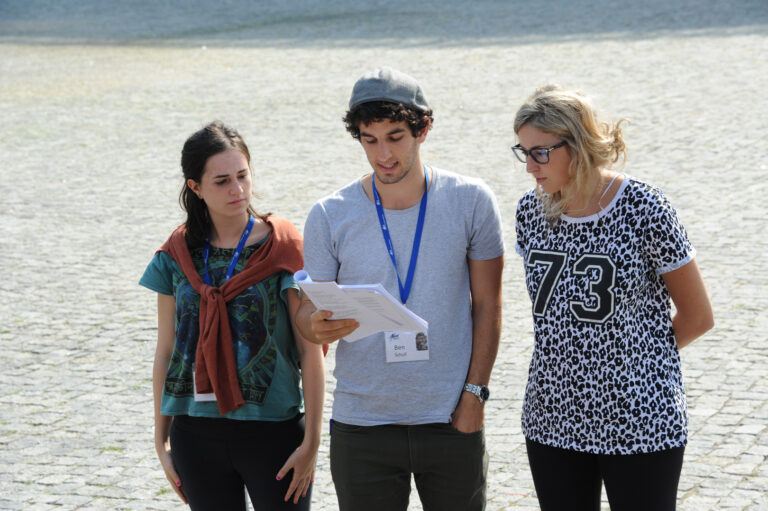One Generation Plants the Trees, and Another Gets the Shade (Chinese proverb)
Judaism’s rituals and festivals are always centred around the children. The inclusion of the newest and youngest members of our community shapes the way we teach the next generation about our history and religion.
Engaging children and the youth take on many different forms, for example, dressing up on Purim, inviting their questions at the Pesach Seder, encouraging dialogue and rigor of text study during Shavuot and decorating the Sukkah.
It is interesting to compare Judaism’s approach to actively including children in all things related to ritual with the famous expression “children should be seen and not heard.” This is, without a doubt, not our approach!
We want children to be part of our communal celebrations and experiences. The more children that participate in our rituals, the more Yiddishe Nachas we get from their engagement with tradition.
This makes the past two years of a global pandemic even more difficult. There is now a cohort of children that, due to circumstances beyond anyone’s control, have missed out on celebrating their Bar and Bat Mitzvahs in a Synagogue.
In more than two years, these children have not been able to celebrate Rosh Hashanah, the Jewish New Year with their families in our Holy Sanctuary. They have missed out on spending time with their Bubbas and Zaidas and having the experiences that shape the way many of us relate to our faith through our multigenerational experiences with family in the Shule.
 While Zoom can help to bridge the distance, and was obviously necessary during the pandemic, it is a poor replica for the rich experience of in-person services and time spent in-person with family at Shule.
While Zoom can help to bridge the distance, and was obviously necessary during the pandemic, it is a poor replica for the rich experience of in-person services and time spent in-person with family at Shule.
Our religion exclusively focuses on retransmitting Jewish traditions. The Passover Haggadah specifically instruct parents “Vehigadeta Levincha” – “you shall tell it to your child” the story of the miraculous exodus of the Jewish people. We learn about our rituals through this transmission process. Little boys and girls copy their fathers and mothers and mimic their actions.
So, after a two-year break due to a global pandemic, how does one lure people back into our Sanctuary and show them the relevance that Synagogues retain to their lives?
Serving G-d should always come from a place of love. Asking people to come back to the ritual of celebrating tradition in the Synagogue should not come from a place of guilt or resentment. The duty of a leader is to remind people of the joy and meaning that Synagogues can bring to their lives. A leader should remind the congregation of the importance that a Synagogue holds in helping to transmit Judaism to the next generation.
One of the best parts of my job as a rabbi is seeing the intergenerational families that come to services and participate in the community. In my time at the Ark, I have seen many couples go through momentous life occasions, from converting to Judaism, marrying their life partners, and then having children. When I see these children in the Sanctuary of our Synagogue it is hard to convey the immense joy that it sparks within me.
Its not just personal joy, but also joy for our community a whole. It is a recognition that children are our future, and its everybody’s responsibility to assist in building the next generation.
In this Sanctuary, together we sit and are there for each other at life’s best moment like births and marriages as well as life’s toughest moments like deaths and losses. But the consistent thread that binds us through these experiences is knowledge that all the people within this building are here for each other.
When little children run around the building and make noise, it is a sign of vitality and relevance. It shows that the next generation is here to witness the transmission of tradition, participating in tradition. Participating in the rituals practiced by their parents, grandparents and great grandparents. These children are the next link on the long chain that the Jewish people thread back to our patriarchs and matriarchs.
So, as we settle back into this new normal, one where we know what losses COVID has wreaked on the world and our ability to gather, we have a new bounce in our step. We recognise the privilege and joy of being able to gather once again. We witness the new seeds that are being planted in the building when our children come back to Synagogue and witness the tradition.
Two years is a long time to miss out on pivotal life experiences, but it also reinforces the importance of coming back. When we gather the energy is electric. We ourselves become links in the chain that started with Abraham and Sara, and we feel the responsibility in transmitting our heritage to our children.
So, come back. We are waiting for you and your children with open arms!
Author
 Rabbi Gabi Kaltman leads the Ark Centre. Through his openness and inclusive approach to Judaism, Rabbi Gabi has redefined the 21st Century synagogue within the context of Modern Orthodoxy with a greater focus on song and spirituality. Rabbi Gabi holds a Masters of Social Work and is Chairman of Melbourne Fight Back Against Parkinson’s Inc, a not for profit charity that assists people with Parkinson’s disease. He is an executive member of the JCCV and President of the JCM. He directs the Pillars of Light Festival- a multicultural celebration of Channuka in Fed Square.
Rabbi Gabi Kaltman leads the Ark Centre. Through his openness and inclusive approach to Judaism, Rabbi Gabi has redefined the 21st Century synagogue within the context of Modern Orthodoxy with a greater focus on song and spirituality. Rabbi Gabi holds a Masters of Social Work and is Chairman of Melbourne Fight Back Against Parkinson’s Inc, a not for profit charity that assists people with Parkinson’s disease. He is an executive member of the JCCV and President of the JCM. He directs the Pillars of Light Festival- a multicultural celebration of Channuka in Fed Square.








